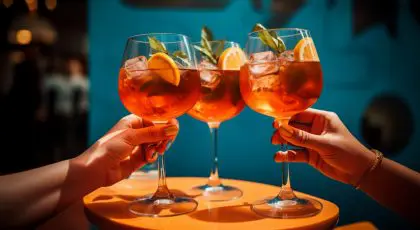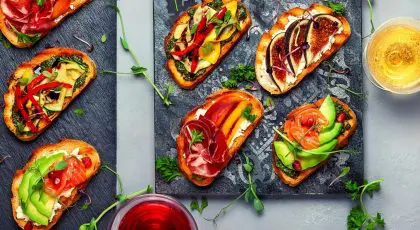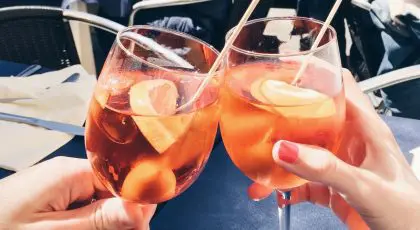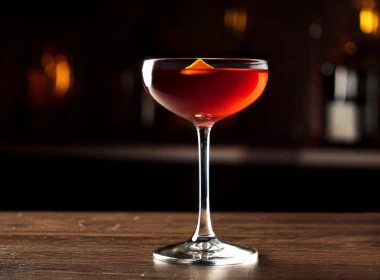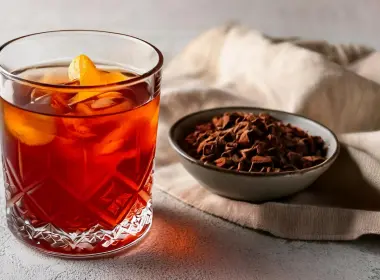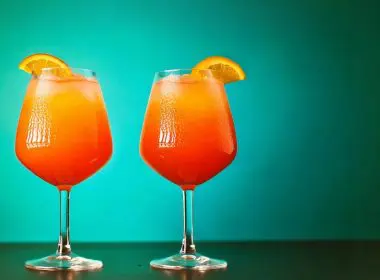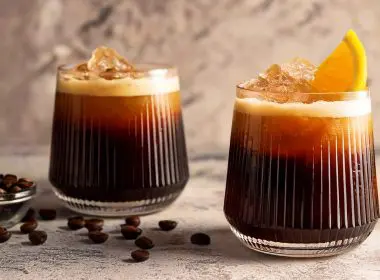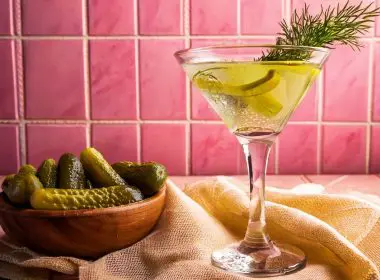The Complete History of the Negroni Cocktail
Jump to:
The history of the Negroni stretches back over a hundred years. Its origins are steeped in Italian elegance and one man’s thirst for a bolder, more spirituous cocktail. At its core, it’s just a simple three-ingredient cocktail, but that hasn’t stopped it from crossing continents, changing cocktail culture, and capturing the collective imagination of the world. Over the years, the Negroni has taken on many guises, but the one constant is its red, beating heart of Campari. It’s a union that’s transcended generations and left an indelible impact on cocktail culture. The story of the Negroni is the story of Campari, and we invite you to tag along as we go back to the beginning to learn more about this enduring legacy.
Origin story
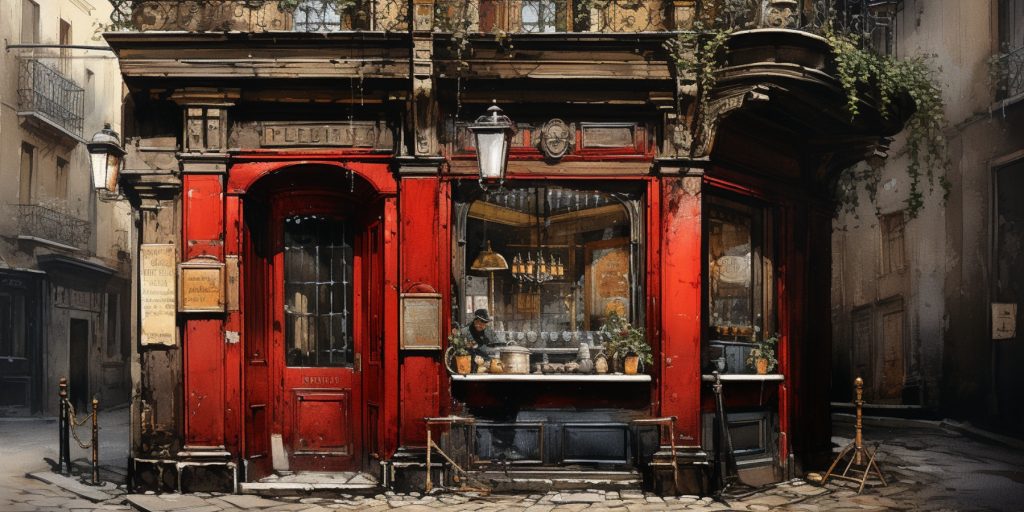
To understand the history of the Negroni, we must travel back a few centuries to explore the roots of the Negroni family tree. Imagine it’s sometime in the 1860s on a gorgeous summer’s day. You’re sitting at your favorite table at Milan’s Caffè Campari, watching the world go by. The barman comes over and offers you his latest creation: a rich red libation in a rocks glass garnished with an orange slice. As you sip on the bittersweet cocktail, he explains that it’s a mix of Campari from Milan and vermouth from Turin. He dubbed it the Milano Torino and, in doing so, planted the seed from which the Negroni family tree would grow.
Fast forward a few years, and Milan is the new hotspot for American tourists. The locals cottoned on to the fact that Americans had a taste for Italian bitters but also that they preferred long drinks. Some bars started adding club soda to the Milano Torino and serving it in a taller glass. The ‘American style’ cocktail took off, and quicker than you can say ‘Merica!, the Americano was born. The Americano satisfied thirsts for many years to come, but it wasn’t until 1919 that the next chapter in the Negroni saga was written.
Like a lot of cocktail history, the history of the Negroni has become muddled with time and, well, too many cocktails. But it’s widely accepted that the invention of the Negroni cocktail is attributed to one Count Camillo Negroni. He was an Italian-born dignitary who, by all accounts, lived an adventurous life. Legend has it that he spent a lot of his time traveling and was a prolific gambler and lover of cocktails. His favorite was the Americano, and after a stint in America as a cowboy, he returned home to Florence, Italy, and his favorite watering hole, Casoni Bar. It was here that he instructed legendary bartender Fosco Scarselli to add a little more kick to his favorite drink. Scarselli obliged him by replacing the club soda with gin and garnishing it with an orange instead of the traditional lemon. There aren’t any records of the Count’s first sip reaction, but we like to think he screamed, Hell yeah, brother!’ at the top of his lungs while high-fiving Fosco.
And so, the iconic Negroni was born, carrying with it a legacy that endures today. It’s the cocktail that spawned a thousand more cocktails and is the blueprint for modern-day cocktail culture.
Explore: The 10 Most Popular Cocktails in the World
Campari: The art of bittersweet elegance
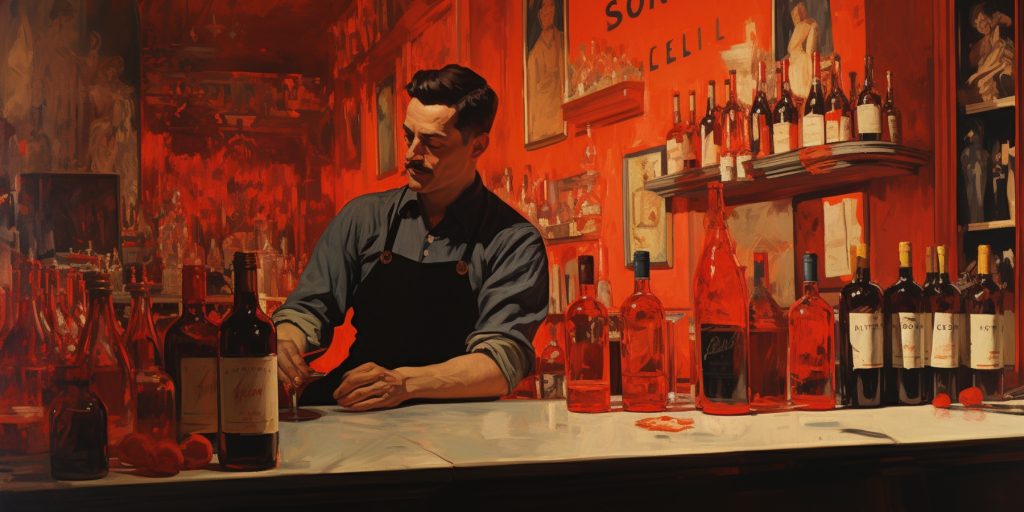
The red heart of the Negroni was founded in 1860 by Gaspare Campari. He was an Italian-born bartender with a penchant for experimenting with homemade bitters. Gaspere Campari was a gifted mixologist, and shortly after creating the recipe for Campari, it became a hit with patrons. Before long, he opened a bar of his own called Caffè Campari. It was built in what is now Italy’s oldest shopping gallery, Galleria Vittorio Emanuele II. It looked out on the majestic Piazza Duomo and soon became the haunt of Milan’s most fashionable.
What set Campari apart from other bitters was its intense red color and bittersweet flavor. The recipe has always been a closely guarded secret, and even today, in the information age, the secret remains. Some say only three people know the recipe, but no one knows for sure. Reports also suggest that there are up to sixty ingredients in Campari, consisting of herbs, spices, and fruit peels.
Eventually, the Campari business was passed down to Gaspare’s son, Davide, ushering in a new age for Campari. Under Davide’s watchful guidance, Campari moved into a state-of-the-art facility and expanded production globally. In the 1900s, the world got a taste for Campari, and sales boomed. Davide even built his own bar, The Camparino, in homage to his late father’s Caffè Campari.
With the invention of the Americano and the Negroni cocktail, interest in Campari was at an all-time high. Throughout the 1900s, the red passion of Campari spilled into everything from art, advertising, and urban culture to films, calendars, and scores of memorable campaigns across all mediums. The brand has become a global icon, and today you’ll find Campari in any bar worth its salt. It pioneered the art of the aperitivo and helped share Italian culture with the rest of the world.
Sip on a few timeless classics: The Vintage Cocktail Comeback
A sip of culture: the Negroni and Italian lifestyle
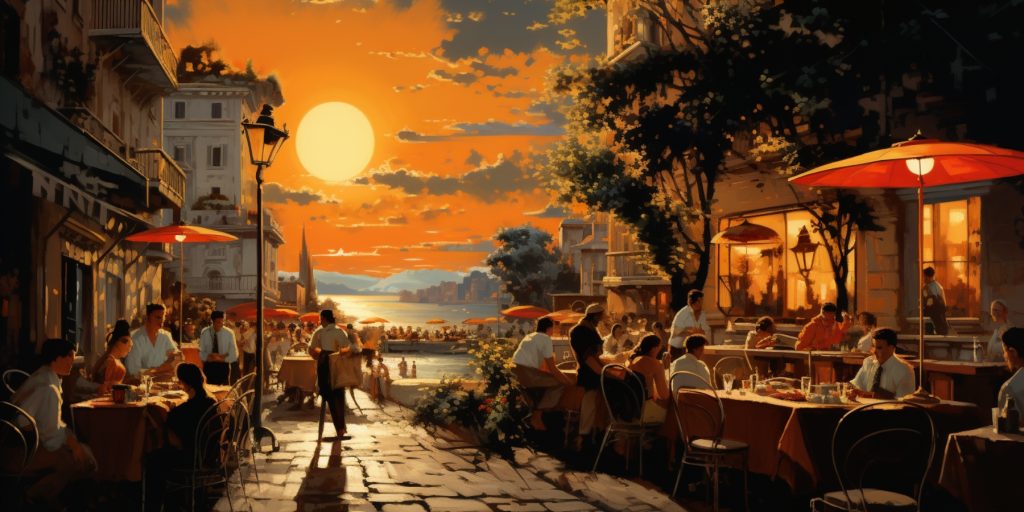
Relaxation is something that we humans take very seriously. Every culture has its own version of it, but Italians take it to another level. They’ve elevated unwinding to an art form, and in Italy it’s called aperitivo. It’s more than just drinks at the end of the day; it’s an expression of culture through food, drink, and good company.
Along with the Spritz, the Negroni is a quintessential part of the aperitivo ritual. The bittersweet classic is the perfect way to charge your appetite before dinner. Complimentary snacks, or ‘cicchetti’ like olives, cheese, and cured meats are served with the Italian cocktails. The idea is not to fill up on snacks but rather to whet the appetite for dinner. Aperitivo usually runs from 6–8 PM and serves as a perfect transition period from the bustle of the day to a more leisurely evening.
The Negroni family tree
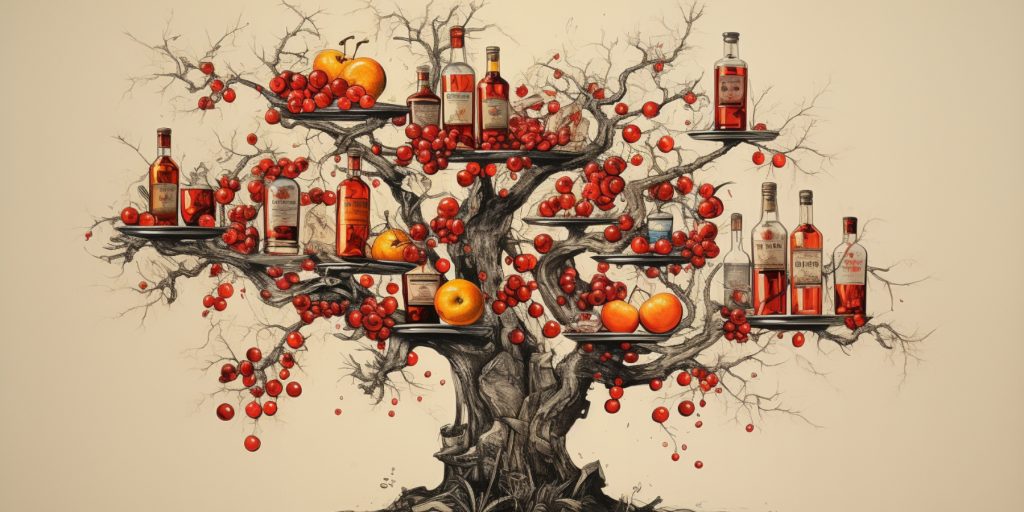
The genius of the Negroni cocktail lies in its simple, equal-parts formula. Campari is the one constant, but gin and sweet vermouth can be switched to create new and interesting cocktails. By following this equation, the red soul of a Negroni remains intact. Campari’s official Negroni family tree features nine variations that all sprout from the original recipe.
In each variation, the spirit or vermouth has been changed, and some even use sweet and dry vermouths in the same cocktail. There are tequila, mezcal, bourbon, rye whiskey, Prosecco, rum, and coffee Negronis, but because of the constant Campari, they all retain the essence of the original. Each cocktail is its own drinking experience, yet they all feel comfortably familiar. This is the magic of the Negroni cocktail.
Link to: 21 Negroni Variations for Negroni Week 2024
How to make a classic Negroni the Campari way
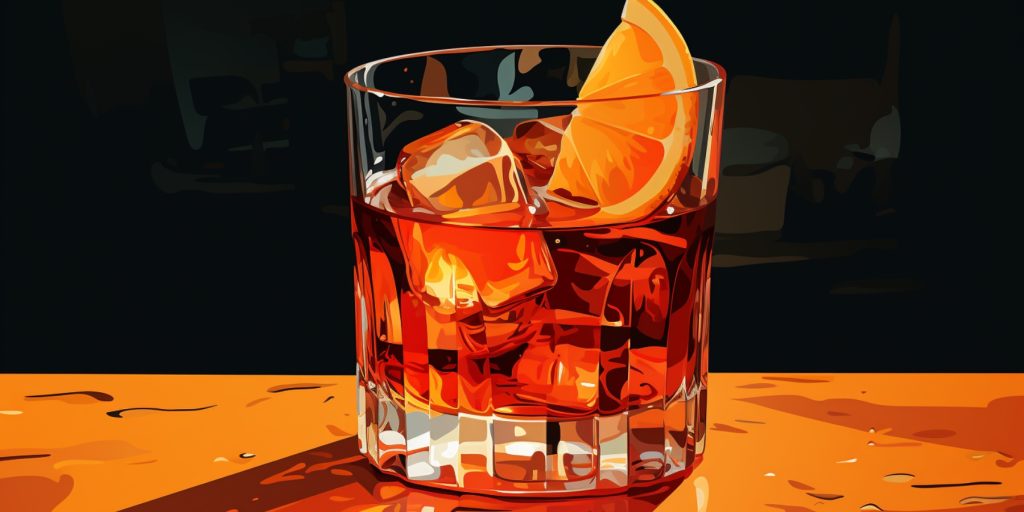
There are no special skills required to mix a good Negroni, but if you want a great one, follow our easy guidelines.
- Always use Campari.
- Use the best quality gin and vermouth you can find. A London Dry Gin is preferable and a proper Italian sweet vermouth.
- Use a 1 oz measure for accuracy and follow the equal parts 1:1:1 ratio.
- Pour the Campari, gin and vermouth into a rocks glass with ice, and stir for at least 30 seconds to chill.
- Squeeze an orange twist over the cocktail to release the oils into it, then rub the rim of the glass before dropping the orange into the drink.
- Enjoy!
Discover more aperitif cocktails: The 28 Best Aperitif Cocktails
A bit about Negroni Week
In 2013, Campari and Imbibe magazine joined forces to create the first Negroni Week. The idea was simple: to create a week-long event centered around the mighty Negroni cocktail, with all the proceeds going to charity. The beauty of the idea lay in the fact that the events would be hosted by bars and restaurants around the world. To participate, all the venues needed to do was make a small donation and then serve a Negroni or a variation of one all week long. Since then, Negroni Week has exploded in popularity and is now a global event. It’s the perfect pairing of cocktails with compassion, and it’s summed up beautifully in Negroni Week’s mantra—sipping for a cause.



